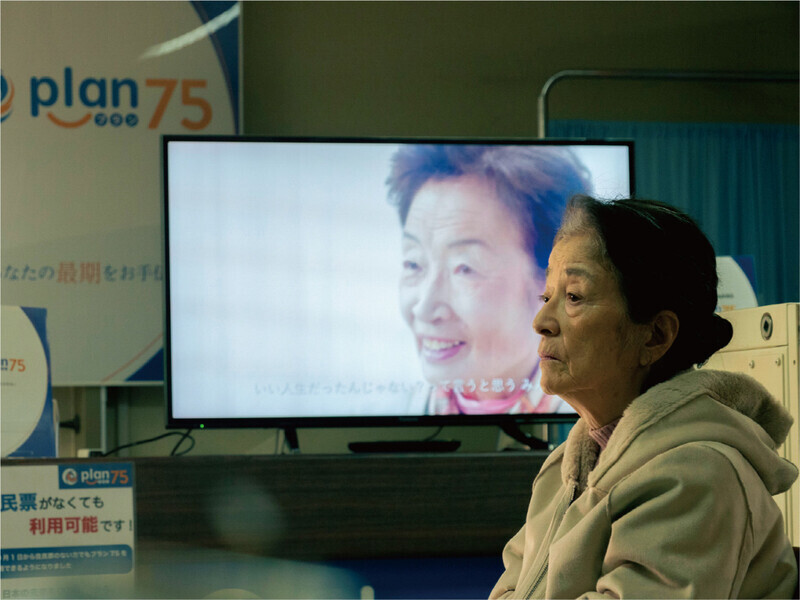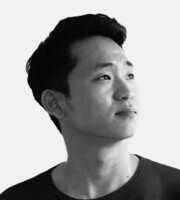hankyoreh
Links to other country sites 다른 나라 사이트 링크
[Guest essay] A society in which old age becomes a burden


By Cho Ki-hyeon, writer
“I’m exhausted,” an acquaintance of mine sighed. This was after they had worked, for a short period of time, at a local government employment support center.
Their fatigue wasn’t caused by overwork. The center they worked in focused on finding job placements for seniors, and there, they saw only too well how harsh the world can be toward those who are not able-bodied.
The center is located on the second floor, but the building lacks an elevator. Most seniors come in person to the center to meet one-on-one with a counselor, which means that already, some are unable to access the center’s facilities.
Even when they drag themselves upstairs with their sore legs, their ordeals are far from finished. If they find it difficult to understand what is being said to them immediately, their questions are answered by sharp irritation, or they are informed that they are unfit for employment since they use hearing aids. Those who protest about not being provided with a job placement are met with raised voices.
This scene is even more tragic when one realizes that those working at the center are also in precarious employment situations. While they do their best to find appropriate placements for those who come for advice, feelings of anger and sadness soon drain them of their enthusiasm.
My acquaintance said that this might be attributed to the fact that since there are so few jobs for seniors, employees at the center are unable to work through the stress they accumulate during work hours.
Whenever my acquaintance describes the scenes they faced at work daily, I felt as if the fear of old age was driving me toward a dead end or the edge of a cliff. It was impossible to not be afraid of getting old.
We are fast approaching our destiny to live in a world where the old outnumber the young. But if we continue to deny opportunities to seniors who are willing to work, won’t they always remain “burdens” in our society?
The Japanese film “Plan 75” depicts a dystopian alternate reality where seniors are seen only as burdens on society. Hate crimes against the elderly, who are adding on to the pressures of the youth with their lack of productivity, have risen, so the Japanese government introduces a new system to ease society of some of its burdens.
The title of the movie, “Plan 75,” refers to a service that gives the option of euthanasia to citizens who are over the age of 75.
The protagonist of the movie, Michi, is a 78-year-old who cleans hotel rooms. A world with Plan 75 depicts itself as a world in which one can voluntarily choose death, but it leaves us with a bitter taste in our mouths.
Private services provide those who choose death with 100,000 yen, or around US$670, to go on guided trips before they die. Three years after the implementation of the service, news reports announce that it has generated an economic impact of 1 trillion yen (about 8.87 trillion won) while also informing that there are talks to revise the service to lower the age restriction to 65.
One day, Michi’s coworker at the hotel collapses while on duty. The hotel uses safety as an excuse to promptly fire their older female employees.
Another coworker of Michi’s says that she will take care of her eldest daughter’s child in return for payment, although she seems reluctant about the situation.
With no family to support her, Michi immediately looks for other positions, but none are available. Her housing situation becomes unstable, leading her to look for different accommodation, but they ask that seniors pay two years’ worth of rent in advance.
As nothing works out, Michi goes to receive counseling for basic livelihood welfare assistance, but is refused counseling when the center claims that the number of daily cases is so overwhelming that they cannot provide her with any sort of service.
In the end, she is left with only one option. The application form for the Plan 75 service. Can we really say this was a choice made of her own free will?
In a world where productivity and efficiency reign supreme, the aging and the old are told to die. When they choose to go through with it, they receive notifications up through their final reminiscences on life.
This sort of tale doesn’t strike me as an allegory, precisely because aspects of it correspond to the attitude that Korea’s government has in its response to low birth rates. Specifically, the idea that the population can be molded and controlled for the sake of the state’s development.
In the ’70s and ’80s, Korea’s government went all out to suppress birth rates, arguing that an excessive increase in the population would stymie economic growth and the eradication of poverty. Only two decades later, the rate of decline had reached such neck-breaking speeds that the government then ran around like a chicken with its head cut off to come up with incentives to encourage Koreans to have babies.
If such artificial and myopic population policy is taken to extremes, couldn’t it be feasible that the government one day tries to regulate death? All I ask is that we take some time to ruminate on that question.
I’d rather not have to see Michi, contemplating death because they have nowhere to work and no way to provide for themselves, in the real world — in Korea or anywhere.
Please direct questions or comments to [english@hani.co.kr]

Editorial・opinion
![[Column] Tariffs on China: Trump was dumb, Biden dumber [Column] Tariffs on China: Trump was dumb, Biden dumber](https://flexible.img.hani.co.kr/flexible/normal/500/300/imgdb/original/2024/0520/191716191153918.jpg) [Column] Tariffs on China: Trump was dumb, Biden dumber
[Column] Tariffs on China: Trump was dumb, Biden dumber![[Column] What if Seoul took reunification by force off the table? [Column] What if Seoul took reunification by force off the table?](https://flexible.img.hani.co.kr/flexible/normal/500/300/imgdb/original/2024/0520/3017161928630494.jpg) [Column] What if Seoul took reunification by force off the table?
[Column] What if Seoul took reunification by force off the table?- [Editorial] Intensifying US-China rivalry means Seoul must address uncertainty with Beijing sooner than later
- [Column] When ‘fairness’ means hate and violence
- [Editorial] Yoon must stop abusing authority to shield himself from investigation
- [Column] US troop withdrawal from Korea could be the Acheson Line all over
- [Column] How to win back readers who’ve turned to YouTube for news
- [Column] Welcome to the president’s pity party
- [Editorial] Korea must respond firmly to Japan’s attempt to usurp Line
- [Editorial] Transfers of prosecutors investigating Korea’s first lady send chilling message
Most viewed articles
- 1New doc undoes stereotypes of N. Korea with candid portraits of women’s football legends
- 2Is growing Korean investment in the US a win-win for both countries?
- 3To weigh costs and benefits, Korea must stop treating US troop presence as a sacred cow
- 488% of Chinese firms would rather work with Korean partners than Japanese ones, survey finds
- 5Kim Jong-un wanted to meet with residents of shelled Yeonpyeong Island in South, Moon recalls in mem
- 63 months into doctors strike, finding an emergency room in Korea is harder than ever
- 7Unification minister says trusting intent of N. Korea could lead to ‘miscalculation,’ criticizing Mo
- 8[Column] Tariffs on China: Trump was dumb, Biden dumber
- 9[Column] What if Seoul took reunification by force off the table?
- 10[Editorial] Transfers of prosecutors investigating Korea’s first lady send chilling message